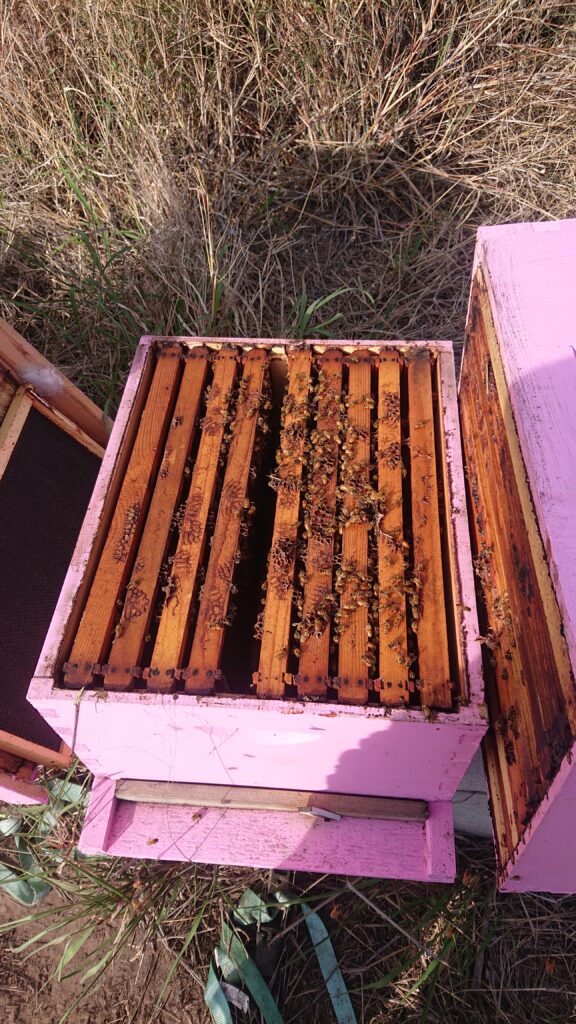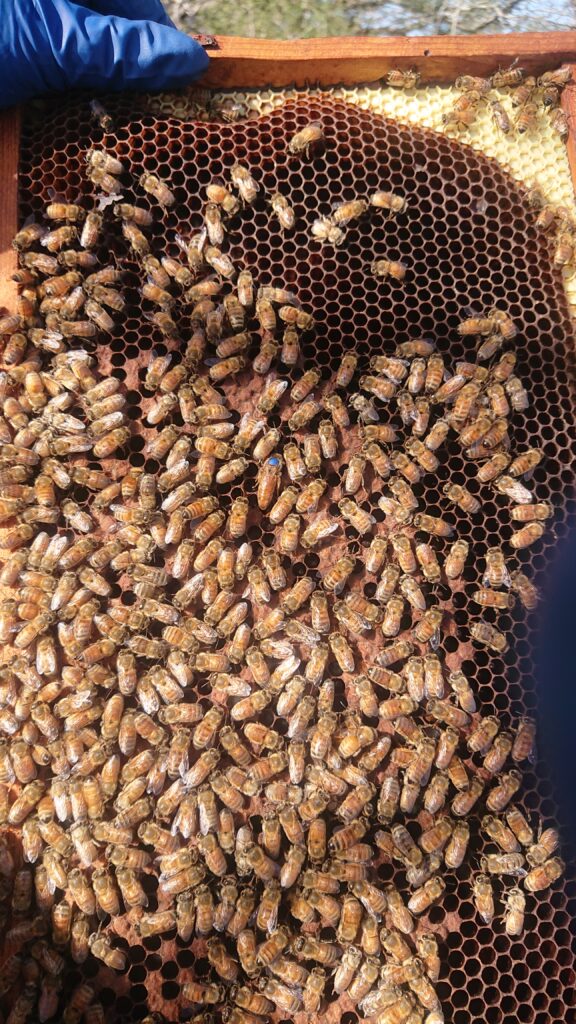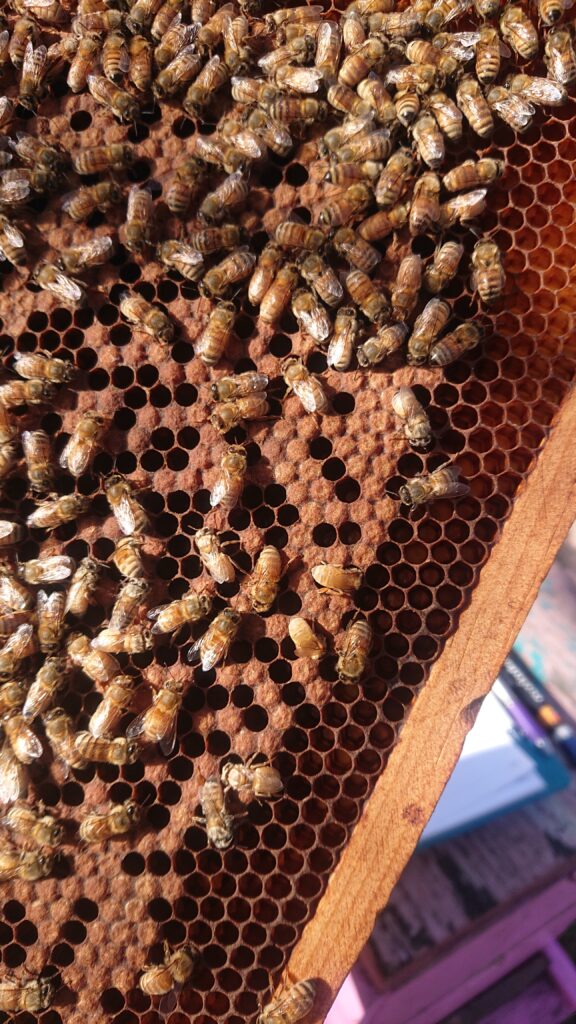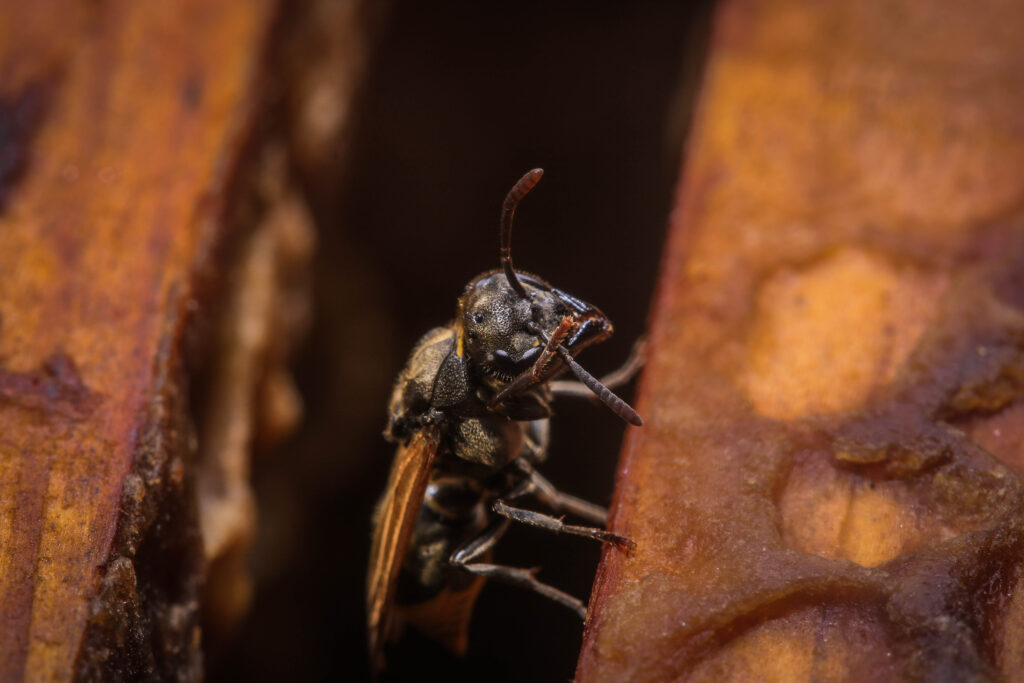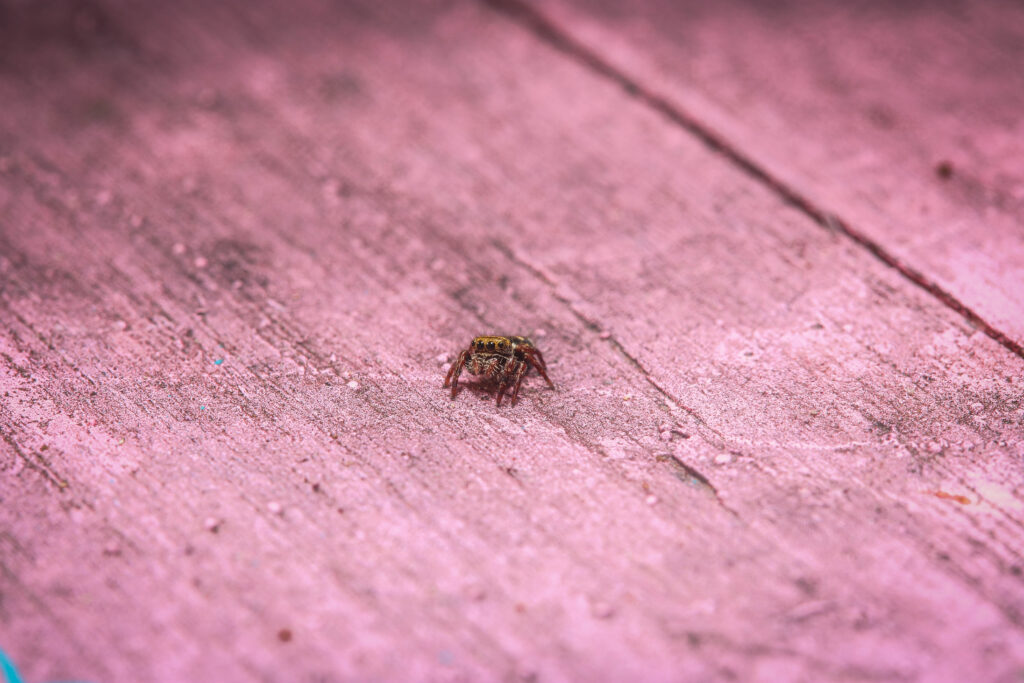First Spring Check 2021
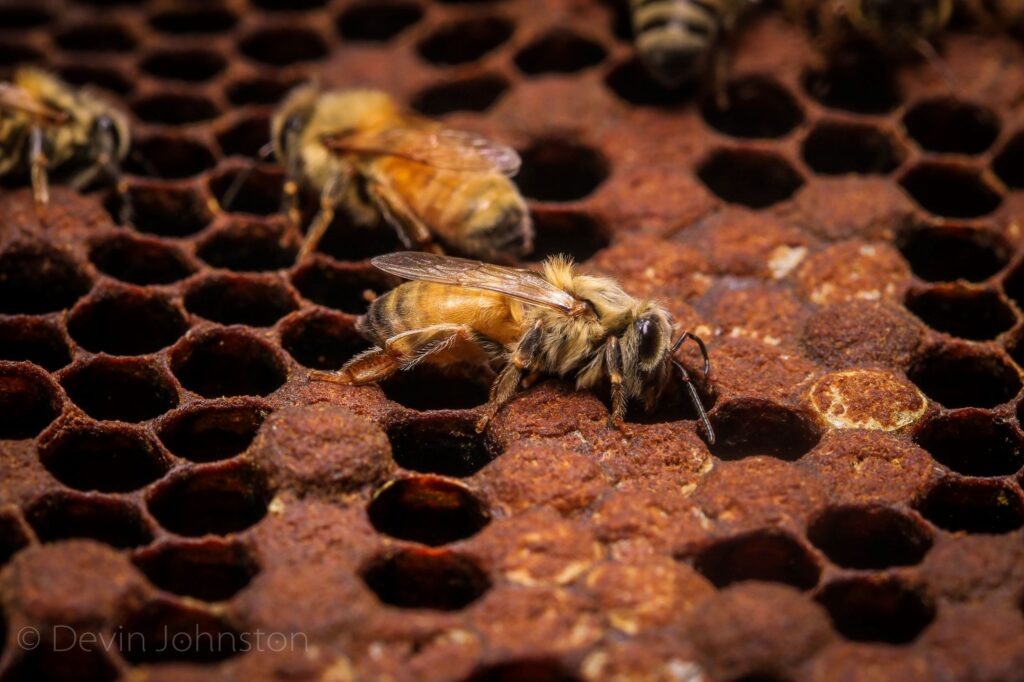
This past weekend on Super Bee Sunday, we got to have our first real check for our over-wintered hives. It is always a bit nerve wracking going into the new bee season because it is less of matter of “did I lose hives?” and more of “how many did I lose?” and that question is the most frightening one.
As full time bee removers, sometimes we just don’t get a lot of time to be beekeepers so days like this is very refreshing even after a very, albeit expected, winter. In this particular yard we have roughly 40 hives, 28 of them were given to us last summer, and nearly every single one of them had been requeened in September. We used two different queen breeders for our stock this year and while I have notes written to compare and contrast them, I’ll refrain from naming the breeders as I’ve not had time to do more observations.
These hives had a huge problem with cross comb in the honey supers which resulted in a lot of bleeding comb and loss of honey. We requeened and changed boxes in September towards the end of the flower blooms even here in deep south Texas. Due to the loss of food stores, the hives went into winter weaker than they otherwise would have, however they were left with more than enough to over-winter successfully. The real danger? Robbing. Any apiary larger than a single hive is at danger for robbing, and even a single hive is at danger from feral hives.
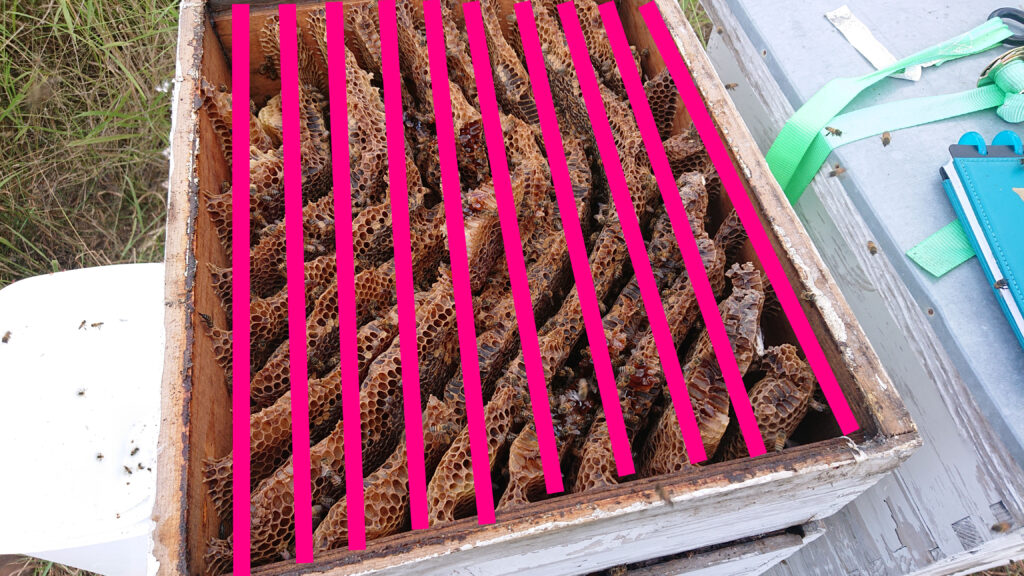
What does this has to do with the now? Well of course it is just one factor in why some of our hives did not survive this winter despite it being so mild. It was a mild winter at least until this week! We treated varroa, but between these hives being basically feral, potential robbing, and disturbing the whole hive with regicide and a coup, it is unsure why we lost the hives we lost. Of the few, most of them were hives I had already written in my notes as a potential over winter loss, so in all we came out better than I had speculated!
Going through this newly requeened hives was such a pleasure! The bees we got from California were so big and gold, while the queens from Georgia were the more similar to the familiar dark and small type bee we associate with our local ferals. When you deal with only Africanized Honeybees it can be a shock to deal with nice bees for once! These ladies didn’t fly, try to sting me, nor did the queen try to hide! One even let me watch her lay and egg, which is always amazing to see.
Sadly, there is also work involved in beekeeping! I know that’s a surprise, but sadly the bees don’t keep themselves. Several of the hives ate through most of their reserves, and many others did not fill up a lot of frames at all. Any hives with an abundance of empty space had the upper deep removed and the remaining honey and brood rearranged so that the food is as close as possible to the babies. Thankfully that foresight will be helpful for those hives to weather this cold front!

Other than that, the bees that remained look fairly strong! They were given some fake, substitute patties and will be given some sugar syrup once the weather warms up. So far results for our hives have been positive and hopefully this trend will keep on all year!
- Share:
